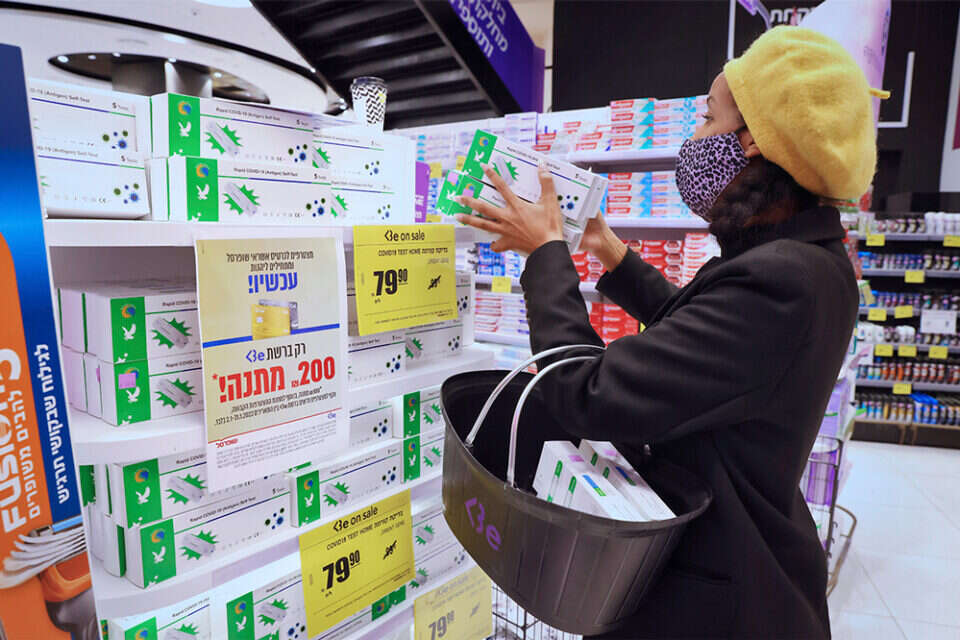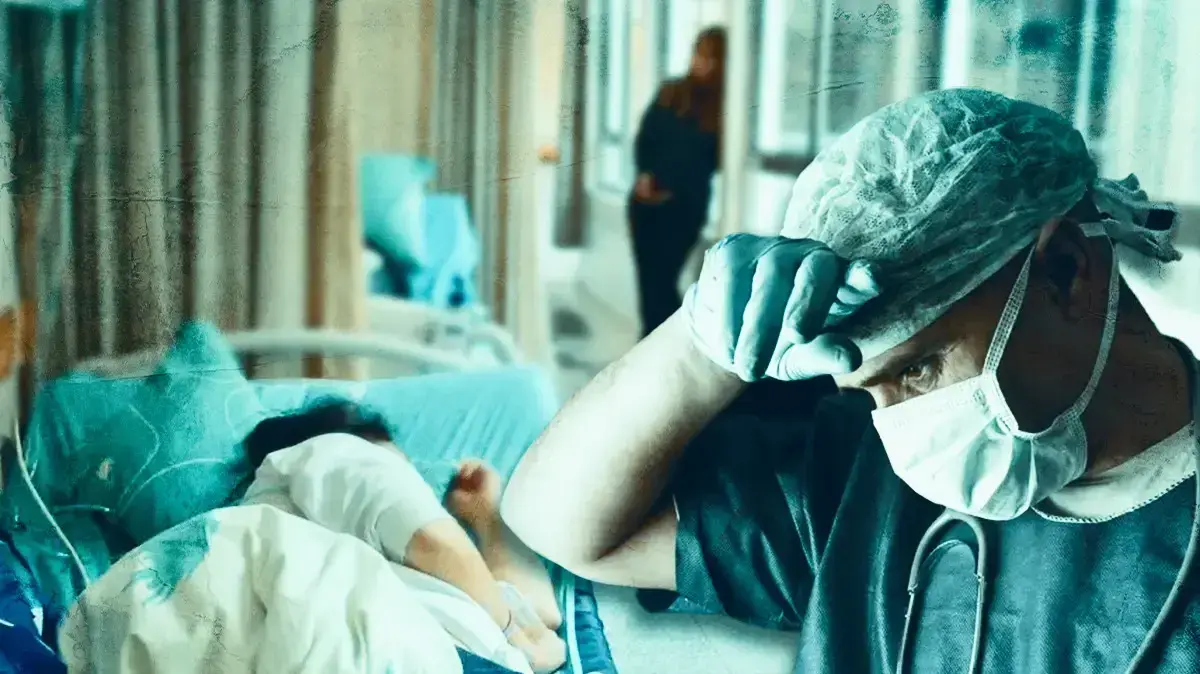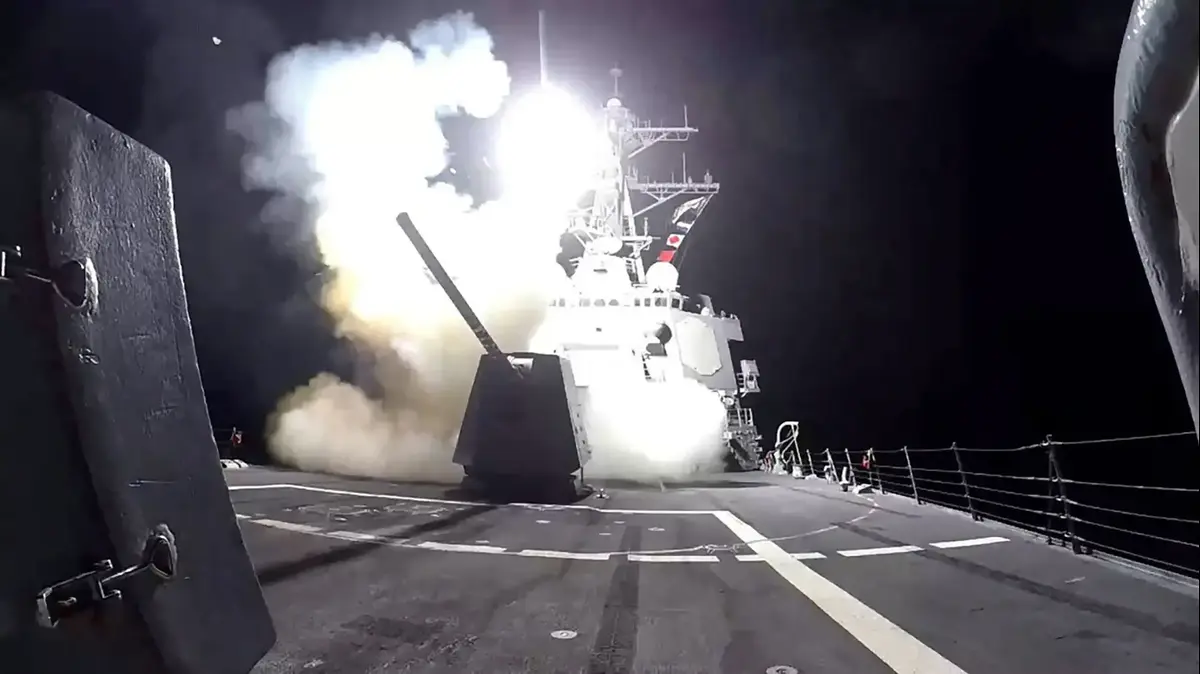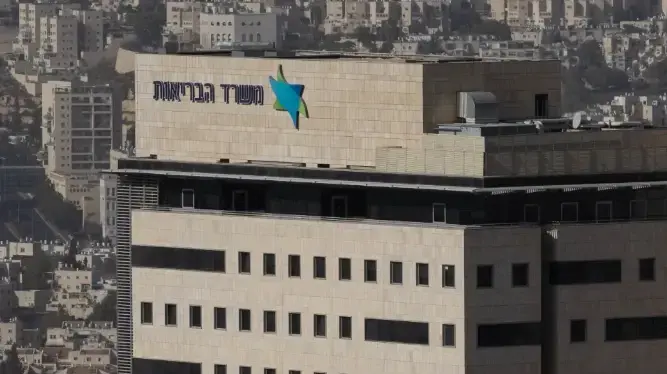After only six months in the Ministry of Economy, CEO Ron Malka has to deal with difficult challenges: the omicron wave is raging and on the way breaking new morbidity records, operators' and industry activity may disrupt as a result of mass isolations, and traffic jams may cause delays in product arrivals. In doing so, businesses are exerting tremendous media pressure in order to receive compensation, while the Treasury says the issue will only be examined in two and a half months.
Malka, who is not often interviewed, tries to send a reassuring message to the public and says in a special interview with "Israel Today" that Israel is prepared for any extreme scenario.
However, Malka does not rule out the possibility that there may be a point shortage, but there is also an "answer" to this.
According to him, the goal is to keep the essential businesses open and anyone who is found in need of assistance will be compensated.
Apart from dealing with Omikron, Malka is currently busy fighting the cost of living, he has high hopes and defines it as a "milestone in the Israeli economy", and he has a message for decision-makers: the competition authority must be strengthened.
Director General of the Ministry of Economy, Ron Malka, Photo: Oren Ben Hakon
In light of the alarming forecasts regarding millions of insulators, do you not have a fear that the vital enterprises will not be able to function and the economy will not function?
We act according to scenarios.
Since we do not want to take unnecessary risks, we also address extreme scenarios in which vital enterprises will not be able to operate.
The supply chain is very important, we have reserves, and we have means that we can operate in an emergency.
I am in constant contact with the economics and industry desk we set up, just yesterday I spoke with the head of Rachel, we are in contact with them, they know what inventory we have and they are responsible for logistics. We have plans on how we can provide baby food, for example. For the public, fuel, energy, we are prepared.The State of Israel knows how to be prepared for an emergency.
The Deputy Minister of Economy (Yair Golan) was a lieutenant colonel and deputy chief of staff, so he is well acquainted with the subject of emergencies and how to prepare for emergencies, so we also use his knowledge.
Definitely for every scenario we have an answer, we prepare it in advance.
Obviously at the end of reality it can be a little different, we will know how to react to what is happening.
Will there be a shortage of products?
It might happen.
There is now a traffic jam in ports and supply and logistics factors may not be functioning.
We have an answer to that, I talked to the Ministry of Transportation to check what is happening in terms of logistics, in terms of seaports, in terms of our options, we are preparing for such scenarios, so that there will be no shortage.
So I believe we have the ability to respond to things that have happened, but always in the end things can surprise us.
At the moment I do not foresee any shortage.
There are estimates of what percentage of the population will not be able to work?
There are different estimates - we hear that Professor Segal and the Ministry of Health are talking about two million people being infected, so we are preparing for all the scenarios.
The intention is to provide a solution so that what is essential will continue to operate, we in turn will give preference to essential operators.
The intention is really to allow all the essential enterprises and the supply chain to continue to operate properly, and for no one to miss anything.
There is a big mess with the home tests - price differences of tens of percent, and the public does not know which kits are more reliable. In light of the decision to impose these costs on the public, should they not be included in price controls?
Price control is one of the options and if required - we will consider it.
Right now what we have done is increase the supply - there are millions of tests coming to the market and we are already seeing the prices of home tests go down.
Yesterday they said that it is possible to buy a test for NIS 7.5 and that is as a result of our actions.
The Ministry of Health checks and reports on the reliability of each of the secrets of the tests - this should be monitored.
I call on the public to buy responsibly, to check where really the price is cheaper.
Should the businesses affected by the omicron wave be compensated?
We are working to formulate a comprehensive response to the market during the epidemic, which takes everyone into account and balances the desire to help those who need assistance with the desire to be responsible for managing public finances.
The mechanisms we are talking about, are both in the short term and in the long term.
In the short term, we allow loans to be taken out to businesses in distress, we are working to defer payments like VAT, I just spoke with the CEO of Social Security and asked him to look into the possibility of deferring Social Security payments.
At the end of the quarter we will look back and examine who was hit net.
There are those who say "but now it is difficult for us", so we give mediation in response - for those who do not have enough assistance from the days of isolation, we will allow deferral of payments, and there are also two loan mechanisms that can bridge.
And if at the end of the quarter it is found that he is indeed entitled to compensation then he will have where to repay a loan, because he will receive compensation.
We have compensated in the past, so there are already ready compensation mechanisms.
A wave of rising prices alongside fears of a shortage of products., Photo: Gideon Markowitz
Three and a half months ago you announced the establishment of a committee that will examine the mediation gaps in fruit and vegetable prices, are there any conclusions already?
The committee was supposed to operate for half a year, it was decided in the arrangements law, but the committee was not established in early August, it was established only in October.
Because of the delay in setting up the committee there will also be a delay in the conclusions.
We work fast, but not at the expense of thoroughness.
We understand that the committee's recommendations and conclusions are important, and they will affect a very important milestone in the Israeli economy.
Is Lieberman and Forer's move to remove the caps on fruit and vegetables too hasty and have to wait for the committee's conclusions?
The hearing of the decree to remove the caps ended last week, and now they will have to decide whether to continue.
It is clear that the question of whether the brokerage gaps are too large and this harms farmers, will affect the decision what should be the rate of tariff reduction and what should be the level of direct subsidies and whether we are required to take action to lower tariffs rolled out to the consumer.
If the realtors (food chains - SG) exercise market power, then even if we take down caps and bring in more goods, it will not help, because it will not be rolled out to the consumer. Once we can publish interim conclusions, when we feel we are solid enough.
When can we feel a reduction in the number of products included in the import reform?
The reform goes into effect in June, it's very fast, we're working at a fast pace.
For me, the import reform is the main thing the Ministry of Economy is doing.
This is a milestone in the Israeli economy.
I as an economist remember talking about it for twenty years and did not, and now we do.
And if you ask me what has gone wrong since the social protest - this is one of the things that went wrong - you insisted on a unique Israeli standard that creates huge barriers and now we have released it.
Two months ago, one after the other, the owners of the food chains were invited to the investigation room of the Competition Authority. Since then - silence. Will this whole story calm down like it did not?
These are things that take time.
In the end it is an investigation and it has meanings, and one should neither speak nor intervene - until one has finished, until one has not reached conclusions.
But it's definitely part of the thing that the competition authority enforces - at the end there is a competition law that says what should be done and how it should be done.
And the point is to what extent we enforce it, and we are in favor of more significant enforcement.
The Competition Authority is an independent investigative authority, I as the director general of the Ministry of Economy is completely uninvolved, I did not know there was an investigation, I read about it in the newspaper, I do not know what investigators are and why investigators. In a monopolistic law, was there an excessive use of price - these are in fact violations of competition law. The very existence of a monopoly is not a violation of competition law, as long as a monopoly does not use monopolistic force it does not commit an offense.
Were we wrong?
Fixed!
If you found an error in the article, we'll be happy for you to share it with us









/cloudfront-eu-central-1.images.arcpublishing.com/prisa/7BBFZMHM2JDPJH25TGODT4ZBT4.jpg)





